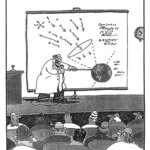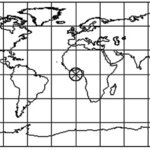
Among the more zealous atheists in the science community, religious people are one big jumble of intellectual immaturity, if not outright stupidity, bent on replacing science classes with the New Testament.(1)
Hey, that's nicer than what they say about Republicans.
But, whether you are religious or not, The Bible is likely part of your cultural lexicon. So whereas if kookier science pundits want to send a negative message, they compare all who disagree with them to Holocaust deniers (calling opponents Nazis is too cliché) because they can't bring themselves to use Biblical comparisons…



